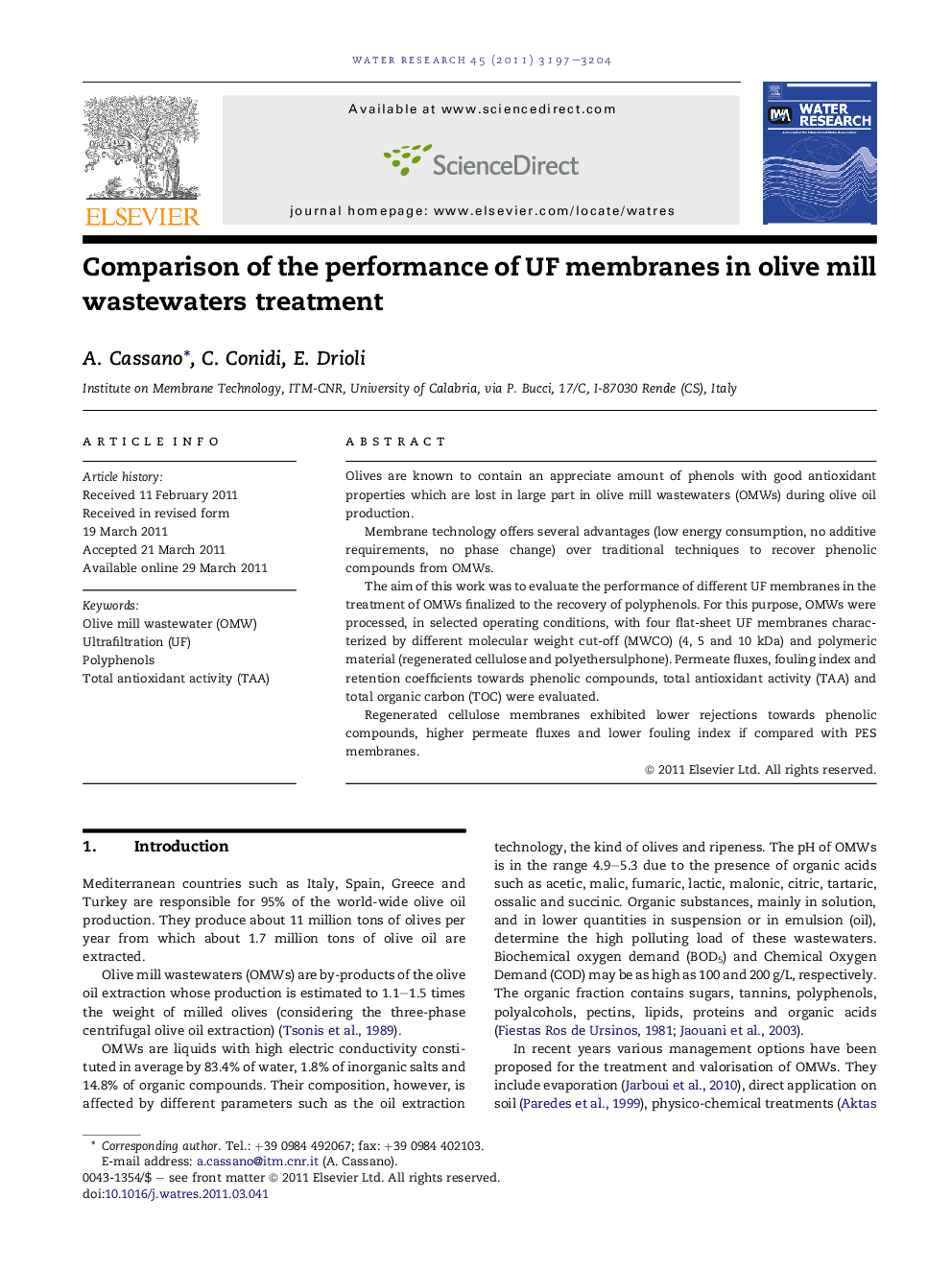| Article ID | Journal | Published Year | Pages | File Type |
|---|---|---|---|---|
| 4483250 | Water Research | 2011 | 8 Pages |
Olives are known to contain an appreciate amount of phenols with good antioxidant properties which are lost in large part in olive mill wastewaters (OMWs) during olive oil production.Membrane technology offers several advantages (low energy consumption, no additive requirements, no phase change) over traditional techniques to recover phenolic compounds from OMWs.The aim of this work was to evaluate the performance of different UF membranes in the treatment of OMWs finalized to the recovery of polyphenols. For this purpose, OMWs were processed, in selected operating conditions, with four flat-sheet UF membranes characterized by different molecular weight cut-off (MWCO) (4, 5 and 10 kDa) and polymeric material (regenerated cellulose and polyethersulphone). Permeate fluxes, fouling index and retention coefficients towards phenolic compounds, total antioxidant activity (TAA) and total organic carbon (TOC) were evaluated.Regenerated cellulose membranes exhibited lower rejections towards phenolic compounds, higher permeate fluxes and lower fouling index if compared with PES membranes.
► Membrane technology has been proposed to recover phenolic compounds from olive mill wastewaters. ► Permeate fluxes and fouling index of different UF membranes were evaluated. ► The selectivity of UF membranes towards phenolic compounds and antioxidant activity was studied. ► Integrated membrane systems for the recovery of polyphenols and water from OMWs can be designed.
